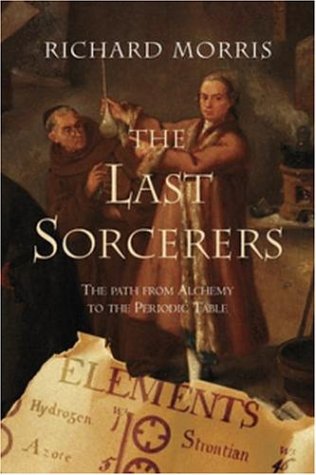

Most ebook files are in PDF format, so you can easily read them using various software such as Foxit Reader or directly on the Google Chrome browser.
Some ebook files are released by publishers in other formats such as .awz, .mobi, .epub, .fb2, etc. You may need to install specific software to read these formats on mobile/PC, such as Calibre.
Please read the tutorial at this link: https://ebookbell.com/faq
We offer FREE conversion to the popular formats you request; however, this may take some time. Therefore, right after payment, please email us, and we will try to provide the service as quickly as possible.
For some exceptional file formats or broken links (if any), please refrain from opening any disputes. Instead, email us first, and we will try to assist within a maximum of 6 hours.
EbookBell Team

4.4
72 reviewsMorris Richard. The Last Sorcerers - The Path From Alchemy To The Periodic Table 2003 [pdf 295sc 282c. 5.01mb]
THEY STARTED WITH FOUR: earth, air, fire, and water. From these basics, they sought to understand the essential ingredients of the world. Those who could see further, those who understood that the four were just the beginning, were the last sorcerers -- and the world's first chemists. What we now call chemistry began in the fiery cauldrons of mystics and sorcerers seeking not to make a better world through science, but rather to make themselves richer through magic formulas and con games. Yet among these early magicians, frauds, and con artists were a few far-seeing "alchemists" who used the trial and error of rigorous experimentation to transform mysticism into science. Scientific historians generally credit the great 18th century French chemist Antoine Lavoisier with modernizing the field of chemistry. Others would follow his lead, carefully examining, measuring, and recording their findings. One hundred years later, another pioneer emerged. Dimitri Mendeleev, an eccentric genius who cut his flowing hair and beard but once a year, finally brought order to the chemical sciences when he constructed the first Periodic Table in the late 1800s. But between and after Lavoisier and Mendeleev were a host of other colorful, brilliant scientists who made their mark on the field of chemistry. Depicting the lively careers of these scientists and their contributions while carefully deconstructing the history and the science, author Richard Morris skillfully brings it all to life. Hailed by Kirkus Reviews as a "clear and lively writer with a penchant for down-to-earth examples" Morris's gift for explanation -- and pure entertainment -- is abundantly obvious. Taking a cue from the great chemists themselves, Morris has brewed up a potent combination of the alluringly obscure and the historically momentous, spiked with just the right dose of quirky …